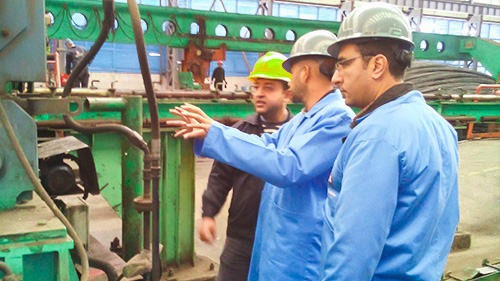Energy efficiency is central to ongoing efforts to tackle climate change. Improving energy efficiency will not only help to curb the greenhouse gas emissions that lead to global warming but will also improve energy security by reducing demand for fossil fuels.
In industry, which remains a major contributor to worldwide emissions, Energy Management Systems (EnMS) are vital to companies’ abilities to implement and measure efficiency improvements. Therefore, it is important that these systems work effectively.
One way of ensuring this is through internal audits that assess whether the management system meets the requirements of ISO 50001. Over the past two years, UNIDO’s Industrial Energy Efficiency (IEE) project has helped 17 companies to carry out EnMS internal audits to ensure that they are ISO 50001 compliant. Over the last three years, the IEE project also provided training to national experts so that they could conduct effective EnMS audits independently and would then be able to transfer their knowledge to partner enterprises.
Helping companies to carry out successful internal audits before they go through the process of a third party audit by an accreditation body has made the final certification process much easier. It has also served to improve understanding within company energy teams of the auditing process and of ISO requirements.
The ISO standard 50001, released in 2011, specifies the requirements for establishing, implementing, maintaining and improving an EnMS, enabling organizations to follow a systematic approach in achieving continual improvement of energy performance, including energy efficiency, energy security, energy use and consumption. The standard aims to help organizations to continually reduce their energy use, and therefore their energy costs and their GHG emissions.
